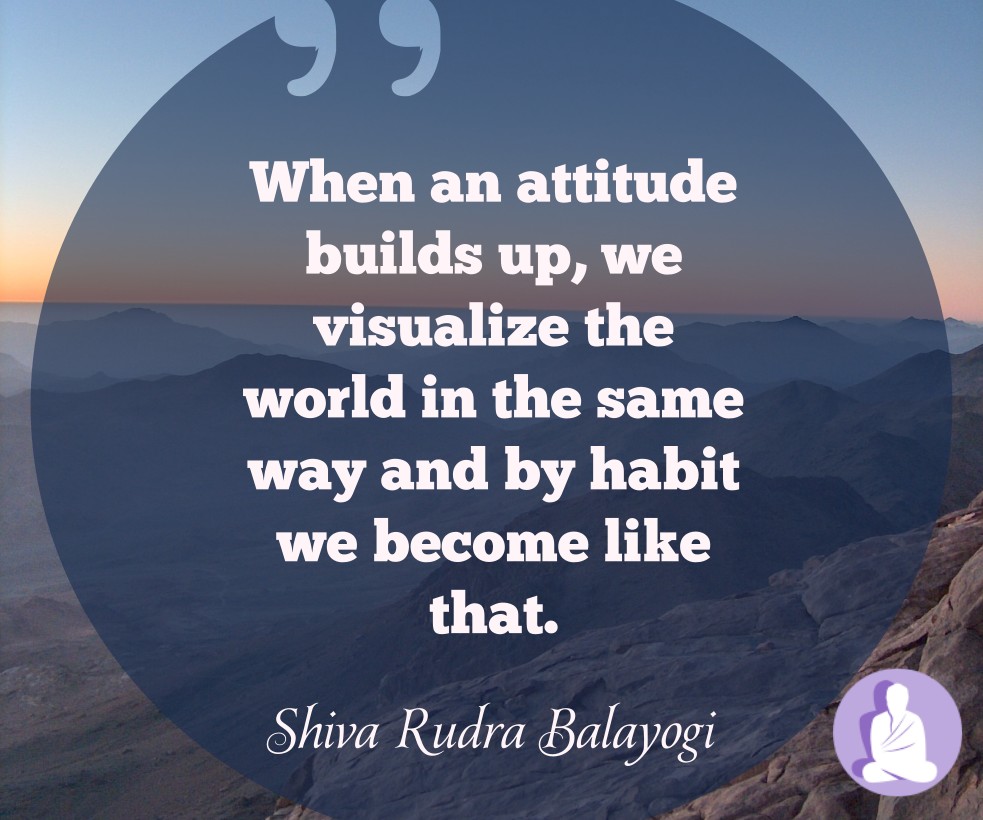Although we live here in this same world, how one person experiences and perceives the surroundings could be very different to another. There is the phrase ‘One man’s food is another man’s poison’. I may find something beneficial and good, but that doesn’t mean another will also – they may think it is very bad or a waste of time.
This depends on our mental attitude. Someone who has a positive attitude will see any situation in a positive light. For a negative person, everything will appear negative, and they won’t notice the positive things.
There is a small story about this in the Indian text of the Mahabharata. In the story there are two princes who were cousins. Yudhisthira was a very righteous character who always tried to pacify conflicts and help others. The other, Duryodhana was a negative character, cheating others and getting into arguments often. Once they visited another kingdom and the king there asked them to look around during the day. In the evening when they came back, the king asked Yudhisthira how he had found the kingdom. ‘I was impressed’, Yudhisthira said, ‘everywhere I saw good people helping others, working hard, being righteous’. Turning to the other prince, the king asked him how he found it. Duryodhyana answered, ‘I don’t know if it was the same place – I only saw people cheating others and having arguments.’
So each prince had picked out in their environment what they had inside of them. Yudhisthira was noble and righteous, so he noticed other noble, good-natured people. Duryodhyana was used to cheating people and getting into arguments, so that is what he picked out and saw above all else.
To cultivate good character and culture in ourselves, we can adopt this meditation as a practice which has been recommended since ancient times. It purifies the mind – instead of being skewed by our mental habits, we can see things more for what they truly are. We can develop a mind with a positive attitude and see the good in others also.

